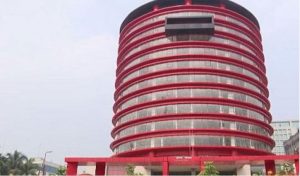By Thalif Deen
UN, Jul 19 2019 (IPS) – The United Nations, which has been tracking both the successes and failures of its highly-ambitious Agenda for Sustainable Development, has warned that “progress has been slow” in many of the 17 Goals after four years of implementation.Described as “a global blueprint for dignity, peace and prosperity for people and the planet”, the 2030 Agenda has left several lingering questions unanswered following a High-Level Political Forum (HLPF) which concluded July 19.
Why are countries faltering on their Sustainable Development Goals (SDGs) which were adopted by world leaders in 2015? Is it due to a decline in development aid? A lack of political will? Or is the agenda far too ambitious in its lofty goals? And will a new global fund help deliver the development agenda by 2030?
Asked for a response, Oli Henman, Global Coordinator of Action for Sustainable Development, who participated in the HLPF, told IPS: “Based on our analysis of the delivery of the SDGs in many countries and our shadow reports from national coalitions alongside the Voluntary National Reviews (VNRs) at the HLPF, there are several reasons for the delays”.
Firstly, many countries are delivering in a piecemeal way, with limited national plans, and many countries only focus on a few goals while ignoring the majority of the goals.
Secondly, there does not seem to be sufficient political will in a number of key countries which could be leading the way. Instead, in many Northern countries, inequality and xenophobia are on the rise, he added.
Finally, in terms of development aid, there are still very limited funds to support the transformation promised by the SDGs.
“We urgently call for a global fund to support the grassroots delivery of the 2030 Agenda”, said Henman, speaking on behalf of a new and rapidly growing decentralised network of over 2,000 civil society organisations (CSOs) and local activists in more than 160 countries.
n a report released just ahead of the ministerial meeting of the HLPF, the UN’s Department of Economic and Social Affairs (DESA) said “there is no escaping the fact that the global landscape for SDG implementation has generally deteriorated since 2015, hindering the efforts of governments and other partners. Moreover, the commitment to multilateral cooperation, so central to implementing our major global agreements, is now under pressure.”
A new joint declaration, “Stand Together Now for a Just, Peaceful and Sustainable World”, adopted by dozens of CSOs July 17, said: “We are standing alongside many others around the world in calling out a state of emergency. Humanity cannot afford to wait, people are demanding transformative change, and we are not willing to accept the current lack of action and ambition from many governments.” full text
The call to action comes from a wide range of CSOs, including those working on fighting inequality, humanitarian assistance, human rights and climate change, such as Action for Sustainable Development, ACT Alliance, ActionAid, Amnesty International, CAN, CIVICUS, CPDE, GCAP, Greenpeace, Oxfam and Restless Development.
Asked whether some of the goals, including the eradication of extreme poverty and hunger, be ever reached by 2030, Henman said the Goals are under threat because in many countries government policies and priorities mean inequality is rising, conflict has increased, and the opportunity to speak out is under threat.
“The lack of a joined-up approach to tackling the underlying challenges of extreme poverty and inequality is further under threat from climate displacement and increasing concentration of land and wealth. People are being pushed off their land and losing the right to speak out,” he declared.
Meanwhile, the network of CSO says that inequality is rising, with the 26 richest billionaires now owning as many assets as the 3.8 billion people who make up the poorest half of the planet’s population.
“The climate emergency is worsening, with the United Nations saying we could have just 11 years left to limit a climate change catastrophe”.
A global crackdown on human rights means that only 43 UN member states are currently meeting their commitments to uphold the fundamental civic freedoms of expression, association and peaceful assembly.
At the same time, the majority of countries that have signed up to the SDGs, are not making the progress needed to avert a global break down.
The writer can be contacted at thalifdeen@ips.org




